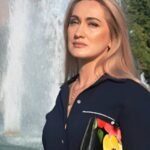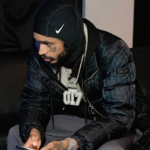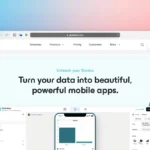Rachel Caesar has become a prominent figure in the field of public health, particularly known for her contributions to epidemiology, health equity, and effective science communication. With her extensive experience working on health crises such as COVID-19 and her unwavering advocacy for underserved communities, Rachel’s career serves as a model for public health professionals globally.
In this article, we’ll explore Rachel Caesar’s background, academic accomplishments, professional trajectory, and the broader impact she has had on the field of public health. A detailed biography table is included below to summarize her key life details before diving into an in-depth analysis of her work.
Rachel Caesar Biography Table
| Attribute | Details |
| Full Name | Rachel K. Caesar |
| Profession | Public Health Scientist, Communicator |
| Education | PhD in Medical Anthropology |
| Alma Mater | Emory University |
| Nationality | American |
| Areas of Expertise | Epidemiology, Health Equity, Anthropology |
| Affiliations | CDC, Media Contributor |
| Notable Work | COVID-19 Response, Health Equity Research |
| Known For | Science Communication and Public Health Advocacy |
| Social Media Presence | Active on LinkedIn, Twitter/X |
Early Life and Education
Rachel Caesar’s academic path began with a deep-rooted passion for social justice and healthcare. Her undergraduate studies focused on cultural anthropology, which laid the groundwork for a more nuanced understanding of the sociopolitical contexts influencing health outcomes.
Driven by the desire to explore the intersection of culture, policy, and medicine, Rachel pursued a Ph.D. in medical anthropology at Emory University. Her doctoral research emphasized how structural inequalities affect access to healthcare among marginalized populations in the U.S., particularly in the American South.
Professional Career and Role at the CDC
One of Rachel Caesar’s most notable professional roles has been as a public health scientist at the Centers for Disease Control and Prevention (CDC). At the CDC, she has worked on various initiatives ranging from infectious disease control to behavioral health.
Her involvement during the COVID-19 pandemic positioned her at the front lines of America’s health crisis. Rachel played a key role in translating complex epidemiological data into accessible language for communities and policymakers. This ability to blend scientific rigor with empathy and cultural context has made her work especially impactful.
Moreover, her efforts have contributed to shaping equitable public health messaging strategies for ethnic and minority groups disproportionately affected by pandemics.
Health Equity Advocacy
Rachel Caesar is not only a scientist but also a fierce advocate for health equity. Her research and public engagements frequently highlight the disparities that exist in healthcare access, quality, and outcomes.
Her approach is data-driven but also rooted in lived experience, often incorporating community-based participatory research methods. She believes in the power of listening to communities and co-developing solutions that are both practical and culturally competent.
One of her key messages is that “public health is local.” She emphasizes the need for place-based policies and the importance of tailoring interventions to fit the unique needs of specific populations.
Science Communication Expertise
In addition to her research and government work, Rachel Caesar has carved out a reputation as an influential science communicator. Her ability to bridge the gap between complex scientific data and the general public is exceptional.
She frequently contributes to public discussions on social media platforms like Twitter/X and LinkedIn. During the pandemic, she became a trusted voice, often breaking down CDC guidance in ways that were both culturally relevant and understandable to diverse audiences.
Her commentary has also appeared in national outlets, where she discusses topics ranging from vaccine hesitancy to structural racism in healthcare.
Media Appearances and Public Recognition
Rachel’s media presence has grown considerably in recent years, thanks to her clear, compassionate, and inclusive style of communication. She has been featured in various publications, interviews, and public panels where she discusses urgent health issues facing the nation.
This visibility has led to her being recognized not only within scientific circles but also among grassroots movements aiming to reshape public health narratives. Her work is frequently cited in discussions on decolonizing health communication and making science accessible to all.
Intersectionality in Public Health
A unique feature of Rachel Caesar’s approach is her application of intersectionality to public health challenges. By acknowledging the roles of race, gender, socioeconomic status, and geography, she is able to propose more effective and fair policy recommendations.
Her anthropological background gives her a unique lens to question dominant paradigms in public health and propose more inclusive frameworks. In doing so, she’s helping to shape a new generation of health researchers who are trained to think beyond numbers and engage with the human side of health crises.
Academic Contributions and Research Publications
Over the course of her career, Rachel has published multiple peer-reviewed papers focusing on health equity, pandemic response, and social determinants of health. She often collaborates with interdisciplinary teams to produce actionable findings.
Her scholarly work is widely respected and has influenced public health policies, especially in areas where cultural context is crucial for effective intervention. She has also mentored students and early-career professionals, encouraging them to pursue interdisciplinary paths in health and research.
Impact During the COVID-19 Pandemic
Rachel Caesar’s visibility and influence peaked during the COVID-19 pandemic, when accurate, compassionate, and timely information was more critical than ever. She led community outreach initiatives, worked closely with state health departments, and played a crucial role in vaccine awareness campaigns.
Her initiatives helped reduce misinformation and foster trust between healthcare systems and the communities they serve. She particularly focused on building bridges between science and communities of color that have historically been marginalized in medical research and treatment.
Commitment to Diversity and Inclusion
Throughout her career, Rachel Caesar has maintained a steadfast commitment to diversity and inclusion—not just as buzzwords, but as essential principles of effective public health. She actively works to amplify underrepresented voices in research, public service, and media.
From hiring practices to research funding, Rachel consistently advocates for systemic changes that prioritize inclusion. She believes that to truly improve health outcomes, public health institutions must reflect the populations they serve.
Mentorship and Thought Leadership
In addition to her policy and field work, Rachel has mentored dozens of early-career public health professionals, many of whom cite her as a transformative influence. She often emphasizes the importance of mentorship in building sustainable health infrastructures and institutions.
Her thought leadership extends to conferences, podcasts, and academic panels where she speaks about the future of health equity, cultural humility in science, and best practices in crisis communication.
Current and Future Endeavors
As of 2025, Rachel Caesar continues her work in public health with a focus on climate resilience, rural health disparities, and digital health equity. She is involved in initiatives that leverage technology to bridge healthcare gaps in underserved communities.
There is speculation that she may soon release a book compiling her insights from the pandemic era, aiming to create a blueprint for responsive, ethical public health systems in the future.
Read More: Daskusza Exploration – Unveiling the Mysteries of a Forgotten Land
Conclusion
Rachel Caesar stands as a powerful example of what it means to be both a scientist and a communicator, a policy maker and an activist. Her career embodies the principle that public health is not just about data, but about people—their cultures, histories, and lived experiences.
By blending scientific expertise with compassion and cultural intelligence, she is reshaping how health policies are made and how public health messages are shared. Her work will undoubtedly continue to influence the field for years to come.











